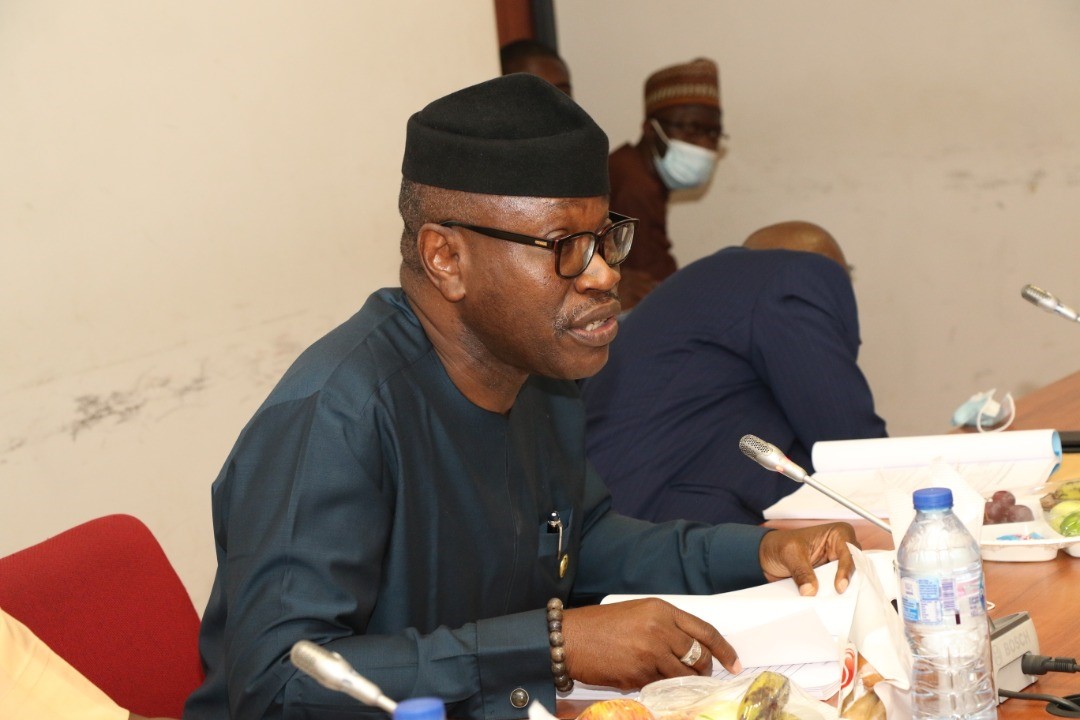The President of World Bank Group, Mr David Malpass, has announced his intention to step down from his position by the end of the Bank Group’s fiscal year on June 30.
This is contained in a statement obtained from the World Bank website on Thursday in Abuja.
According to the statement, Malpass, who has served more than four years as the bank’s president, made his intentions known to the Board of Executive Directors.
The statement said that during Malpass’s tenure, he focused on seeking stronger policies to increase economic growth, alleviate poverty, improve living standards and reduce government debt burdens.
It said in the last four years, the bank five institutions (IBRD, IDA, IFC, MIGA, and ICSID) responded quickly to global crises.
“They did this by mobilising a record 440 billion dollars in response to the COVID-19 pandemic, war in Ukraine, sharp global economic slowdown, unsustainable debt burdens, climate change, food, fertiliser and energy shortages.’’
The statement quoted Malpass as saying, “it has been an enormous honour and privilege to serve as president of the world’s premier development institution alongside so many talented and exceptional people.
“With developing countries facing an unprecedented crisis, I am proud that the Bank Group has responded with speed, scale, innovation, and impact. The last four years have been some of the most meaningful of my career.
“Having made much progress, and after a good deal of thought, I have decided to pursue new challenges.
“I want to thank our staff and Boards of Directors for the privilege of working with them every day to strengthen the effectiveness of our operations in the most challenging of times.”
The statement said that with developing countries under severe financial pressure, Malpass met frequently with world leaders to discuss supportive policies, including debt reduction to break the cycles of unsustainable debt.
It said under his leadership, the bank group more than doubled its climate finance to developing countries, reaching a record 32 billion dollars in 2022.
The statement said Malpass led efforts to enable and increase private sector investment and trade.
According the statement, Malpass also contributed purposeful leadership to the bank group’s analytical products on fiscal and monetary policy, currency systems, and governance reform.
The statement quoted Malpass as saying, “the Bank Group is fundamentally strong, financially sustainable, and well positioned to increase its development impact in the face of urgent global crises.
“This is an opportunity for a smooth leadership transition as the bank group works to meet increasing global challenges, and facilitate private investment,
“It is also to sharpen its focus on global public goods, and maintain strong momentum on operational delivery and portfolio performance for client countries.”
The statement listed the accomplishments of the bank during Malpass to include: “implementing record surges in the financing of over 157 billion dollars in response to the COVID-19 pandemic and 170 billion dollars in response to the war in Ukraine’’.
It said the bank also inaugurated the Bank Group’s Climate Change Action Plan to better integrate climate and biodiversity with development and growth.
“The bank made 30 billion dollars available in projects to address the food, fertilizer, and fuel crisis facing developing countries.
The statement said one of Malpass’s key initiatives was to promote debt transparency and sustainability, which was key to rebuilding investment and growth.
“Under Malpass’s leadership, the bank group inaugurated the 2023 Global Sovereign Debt Roundtable process with the IMF to strengthen the debt restructuring process.
The statement said another key priority of Malpass was to strengthen the effectiveness of the bank group management.
It said he did this by prioritising transparency of internal and external activities including through detailed financial and climate disclosures.
The statement said he implemented an important realignment of World Bank operations to deepen collaboration and better integrate the Global Practices and Regional Operating units.
“He partnered with the presidents of six Historically Black Colleges and Universities (HBCUs) to promote the sharing of knowledge and talent among the institutions and developing countries.
“He also initiated the Sexual Harassment Working Group, Anti-Racism Task Force, and Task Force on Workplace Culture to help build a better, more cohesive, collaborative, and responsive working environment.’’
According to the statement, he also navigated multiple threats to staff security, including staff evacuations from Afghanistan, Myanmar, Sudan, and Ukraine, and following coup d’états across the Sahel.














